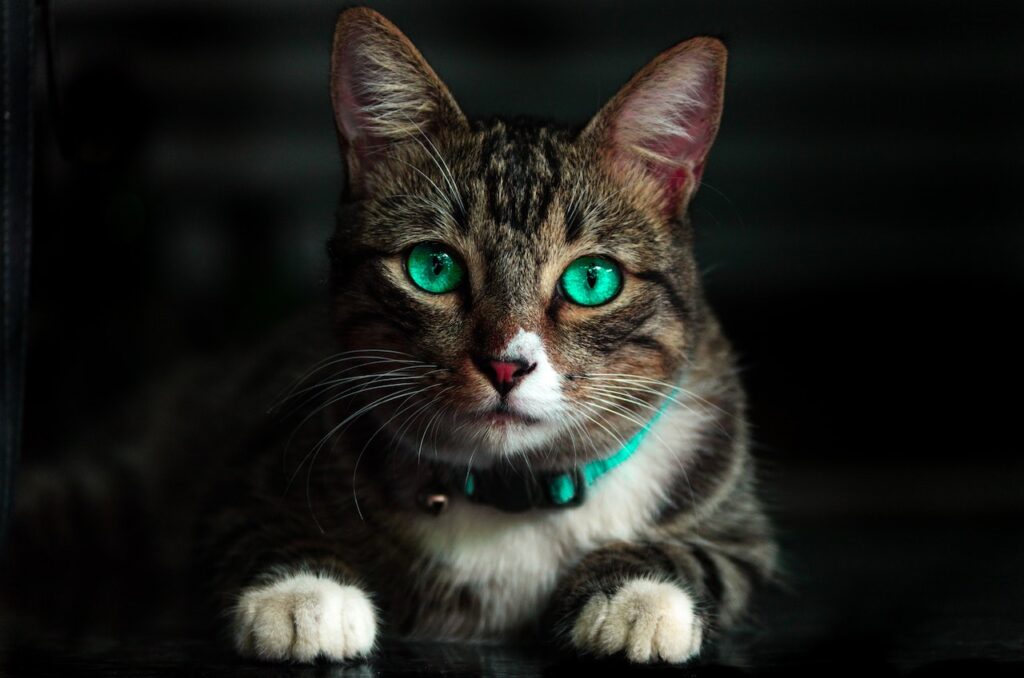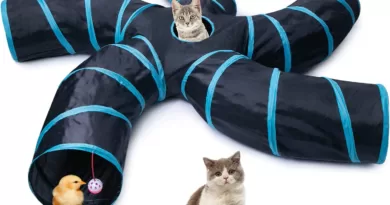Pine Sol and Your Purrfect Pal: Is Pine Sol Toxic to Cats?
Is Pine Sol Toxic to Cats? The Hidden Dangers of Pine Sol for Cats
As cat owners, we always strive to create a safe and healthy environment for our furry friends. However, there are hidden dangers lurking in our homes that we may not be aware of. One such danger is the use of cleaning products like Pine Sol. While Pine Sol is a popular household cleaner known for its fresh scent and powerful cleaning abilities, it can pose serious risks to our cats if they come into contact with it. In this blog post, we will find out is pine sol toxic to cats. and discuss ways to keep our feline companions safe.
Understanding the Ingredients: What Makes Pine Sol Harmful to Cats?
To understand why Pine Sol is harmful to cats, we need to take a closer look at its ingredients. Pine Sol contains a variety of chemicals, including pine oil, surfactants, and fragrance. While these ingredients may be safe for humans, they can be toxic to cats. Pine oil, in particular, can cause irritation and inflammation in a cat’s respiratory system when inhaled. Surfactants, which are used to break down dirt and grease, can also be harmful if ingested by cats.
Respiratory Problems: How Pine Sol Can Affect Your Cat’s Breathing
One of the most significant dangers of Pine Sol for cats is its effect on their respiratory system. The fumes from Pine Sol can irritate a cat’s delicate lungs and airways, leading to respiratory problems. Cats have a heightened sense of smell, so even small amounts of Pine Sol fumes can be overwhelming for them. Prolonged exposure to these fumes can cause coughing, wheezing, difficulty breathing, and even more severe respiratory issues such as bronchitis or pneumonia.

See also: Does Pine Sol Get Rid of Cat Urine Smell?
Skin Irritation and Allergic Reactions: The Risks of Contact with Pine Sol
Direct contact with Pine Sol can also pose risks to cats. The chemicals in Pine Sol can cause skin irritation and allergic reactions in cats. Cats have sensitive skin, and even a small amount of Pine Sol on their fur or paws can lead to redness, itching, and inflammation. In some cases, cats may develop dermatitis, which is a painful skin condition characterized by red, swollen, and itchy skin. It is essential to be cautious when using Pine Sol around cats and ensure that they do not come into direct contact with the product.
Ingestion Dangers: Why Cats Should Never Consume Pine Sol
Perhaps the most dangerous aspect of Pine Sol for cats is its potential for ingestion. Cats are curious creatures and may be tempted to lick or ingest substances they come into contact with. Ingesting Pine Sol can have severe consequences for cats. The chemicals in Pine Sol can be toxic when ingested, leading to gastrointestinal issues such as vomiting, diarrhea, and abdominal pain. In more severe cases, ingestion of Pine Sol can cause liver damage or even be fatal.
Poisoning Symptoms: Recognizing the Signs of Pine Sol Toxicity in Cats
It is crucial for cat owners to be able to recognize the signs of Pine Sol poisoning in their feline companions. Some common symptoms of Pine Sol toxicity in cats include drooling, vomiting, diarrhea, difficulty breathing, lethargy, loss of appetite, and disorientation. If you suspect that your cat has been exposed to Pine Sol or is showing any of these symptoms, it is essential to seek veterinary care immediately.

Veterinary Treatment: What to Do if Your Cat is Exposed to Pine Sol
If your cat has been exposed to Pine Sol, it is crucial to act quickly and seek veterinary care. Contact your veterinarian immediately and provide them with information about the exposure. They will be able to guide you on the next steps to take based on your cat’s symptoms and the amount of Pine Sol they may have been exposed to. In some cases, your veterinarian may recommend inducing vomiting or administering activated charcoal to help absorb any remaining toxins in your cat’s system.
Preventive Measures: How to Keep Your Cat Safe from Pine Sol
Prevention is always better than cure when it comes to keeping our cats safe. Here are some preventive measures you can take to minimize the risk of your cat being exposed to Pine Sol:
1. Store cleaning products securely: Keep cleaning products, including Pine Sol, in a locked cabinet or high shelf where your cat cannot access them.
2. Use pet-friendly cleaning products: Opt for pet-friendly cleaning products that do not contain harmful chemicals. There are many safe and effective alternatives available on the market.
3. Keep your cat out of the cleaning area: When using Pine Sol or any other cleaning product, keep your cat in a separate room or outside until the area is completely dry and free from fumes.
4. Ventilate the area: Open windows and use fans to ensure proper ventilation when using Pine Sol or any other cleaning product.
Safer Alternatives: Exploring Pet-Friendly Cleaning Products
Fortunately, there are many pet-friendly cleaning products available that can effectively clean your home without posing a risk to your cat’s health. Look for products that are labeled as safe for pets and free from harmful chemicals such as ammonia, bleach, and phenols. Some popular pet-friendly cleaning brands include Seventh Generation, Method, and Mrs. Meyer’s Clean Day. These products use natural ingredients and essential oils to clean and freshen your home without harming your furry friends.

Conclusion: Prioritizing Your Cat’s Health and Well-being
As responsible cat owners, it is our duty to prioritize our cat’s health and well-being. Understanding the potential dangers of household products like Pine Sol is crucial in creating a safe environment for our feline companions. By being aware of the risks associated with Pine Sol and taking preventive measures, we can ensure that our cats stay happy and healthy. Remember to always read labels, store cleaning products safely, and opt for pet-friendly alternatives to keep your cat safe from harm.
Enjoyed this Article? You May Also Like:




